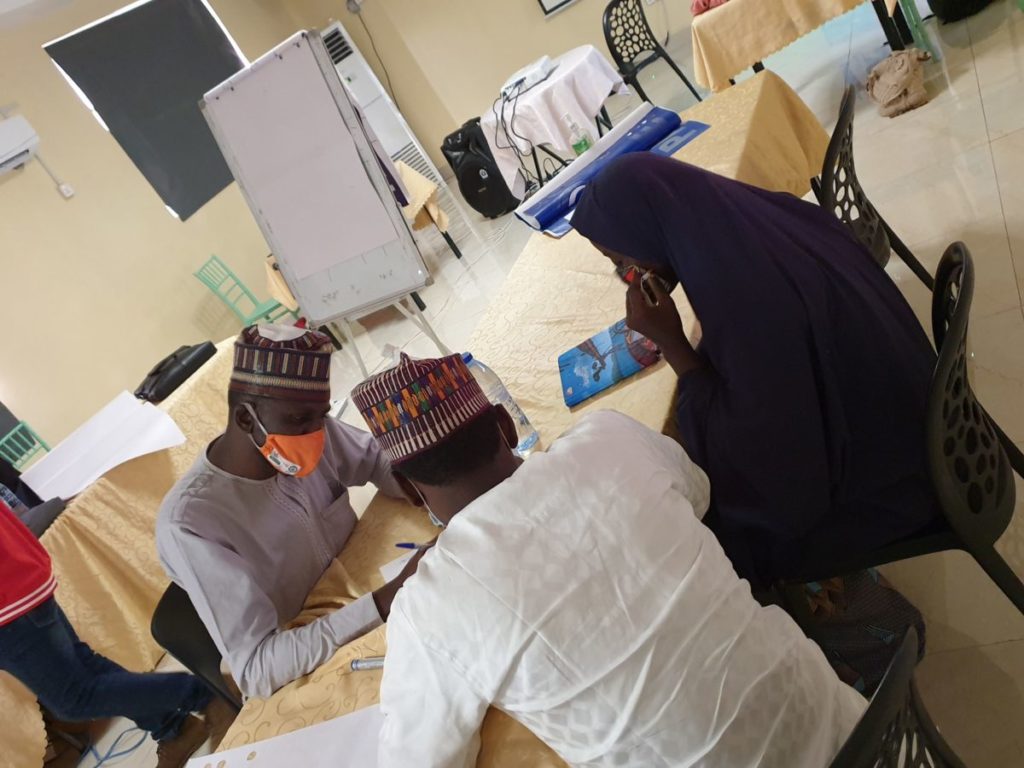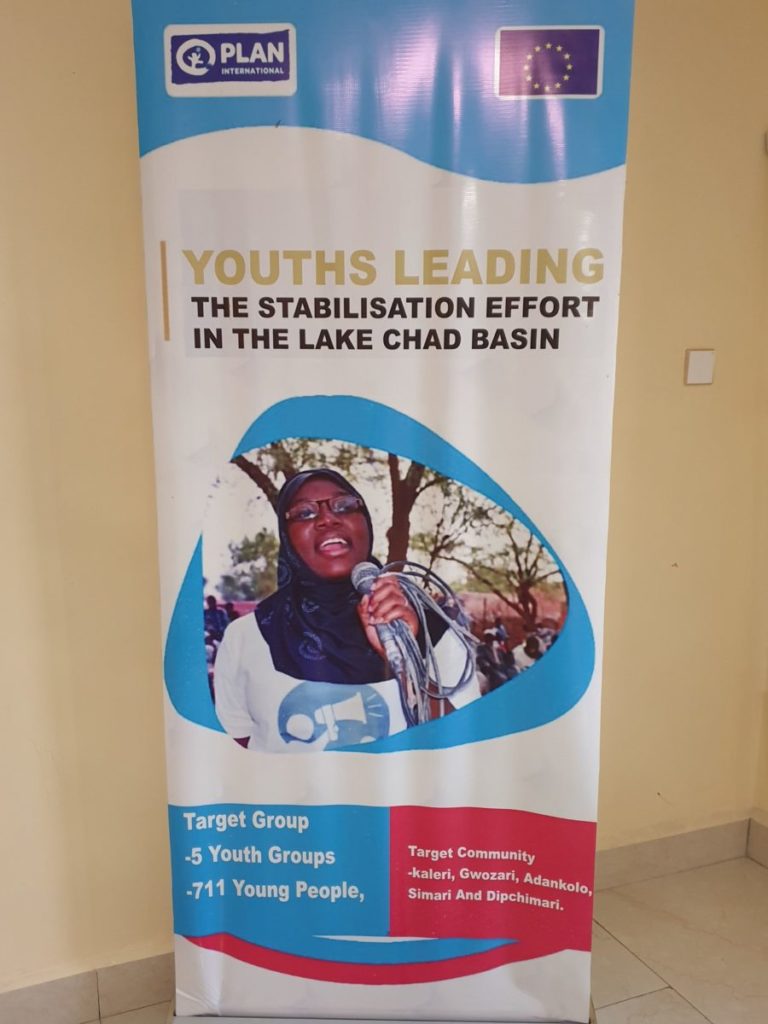Last week I travelled to Maiduguri, in the North East of Nigeria where Plan International is working to support people displaced as a result of the prolonged crisis in the Lake Chad region.
Kaleri youth group has over 700 members and 12 officers and is working with Plan International on a programme working on youth engagement and social cohesion. Lydia has been with the youth group for three years. She joined because she wanted to help in her community. Lydia works as a volunteer teacher with primary classes 3 and 5. Lydia was also one of the people who was interviewed for the study that the Plan International Lake Chad programme carried out on the impact of COVID-19 on youth in the Lake Chad region, and presented on her experiences of the pandemic during the webinar that was organized to launch the report.
You can read the report here: https://reliefweb.int/node/3685738.

The report highlighted the challenges for young people to get involved in their communities and making their voices heard. Some of the other challenges included access to accurate information relating to the pandemic; the impact of school closures and the loss of income opportunities. In fact, access to fair and decent employment and income opportunities pre-existed the pandemic and is a huge challenge for young people in the Lake Chad region, and beyond.
We are working with support from the European Union and Plan International Germany on a programme to support the participation of young people in decision making on processes that affect them, in cooperation with Kaleri youth group, as mentioned above. It targets disenfranchised youth groups and addresses the rights of the most vulnerable youth, including young women and girls, minorities and persons with disabilities.

During the meeting with young people in the North-east of Nigeria, where I met Lydia, the youth groups present explained that while they are very active and want to participate, they often struggle to organise effectively and be heard.
In Niger, up to 70% of the population are under 25 and in Cameroon and Nigeria, the figures are very similar. Young people are disproportionately affected by the conflict, both as victims and as active participants. There is sometimes a perception that the identity and development of young people have been affected by the prolonged armed conflict. The constant involvement of some young people as perpetrators of violence has led some people to stereotype them as the problem.
In a society, where the elders dominate political and social activity, young people find themselves with a very limited role to play. The youth group representatives told us that there are still critical gaps with regard to youth engagement in the development and peacebuilding process within communities. Plan International is working with communities to support platforms where important discussions can take place.
To paraphrase Whitney Houston, (I believe) the children (and young people) are our future.
How well will we let them lead the way?